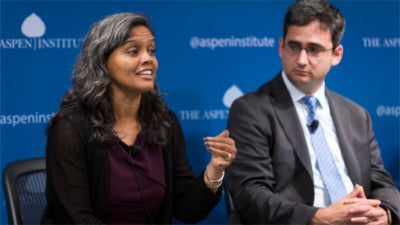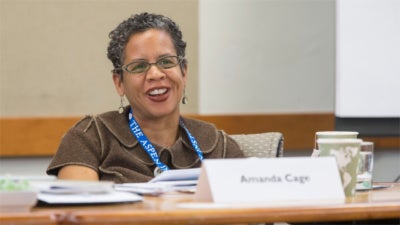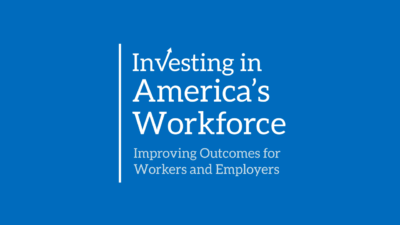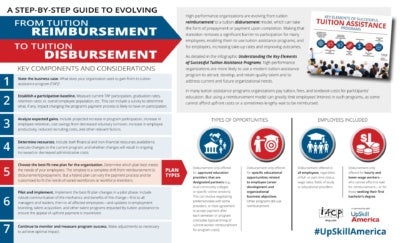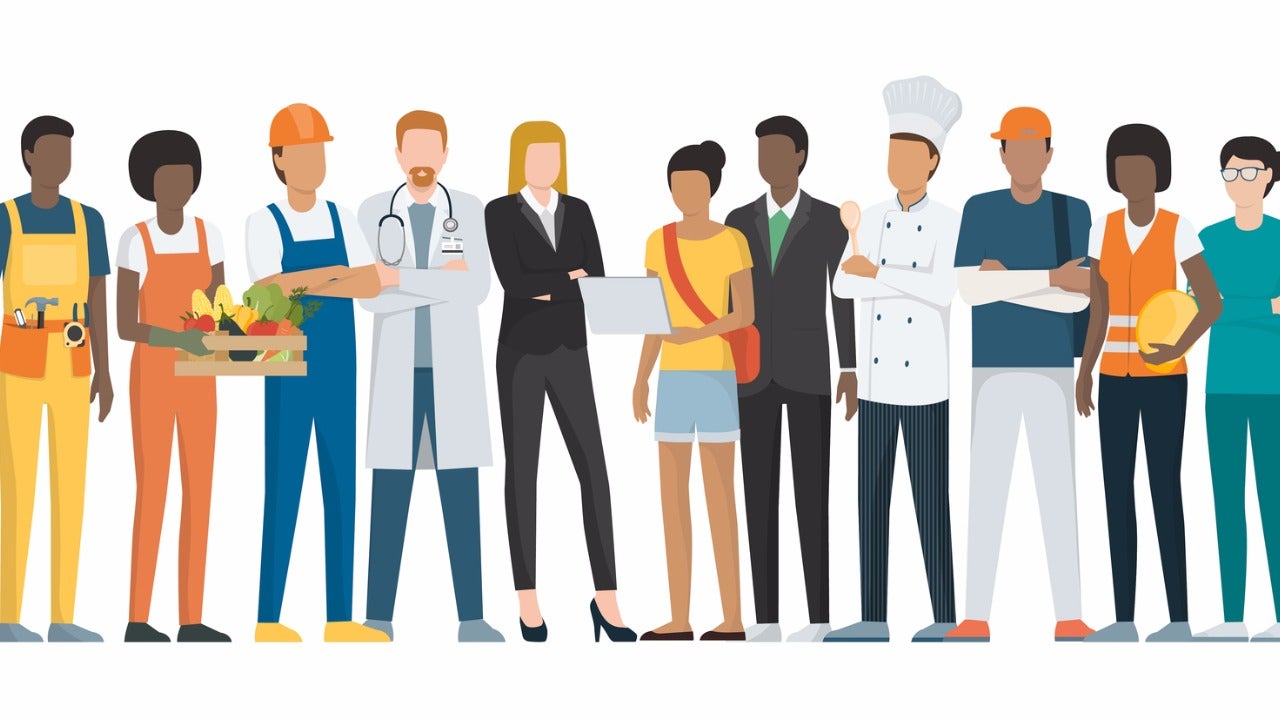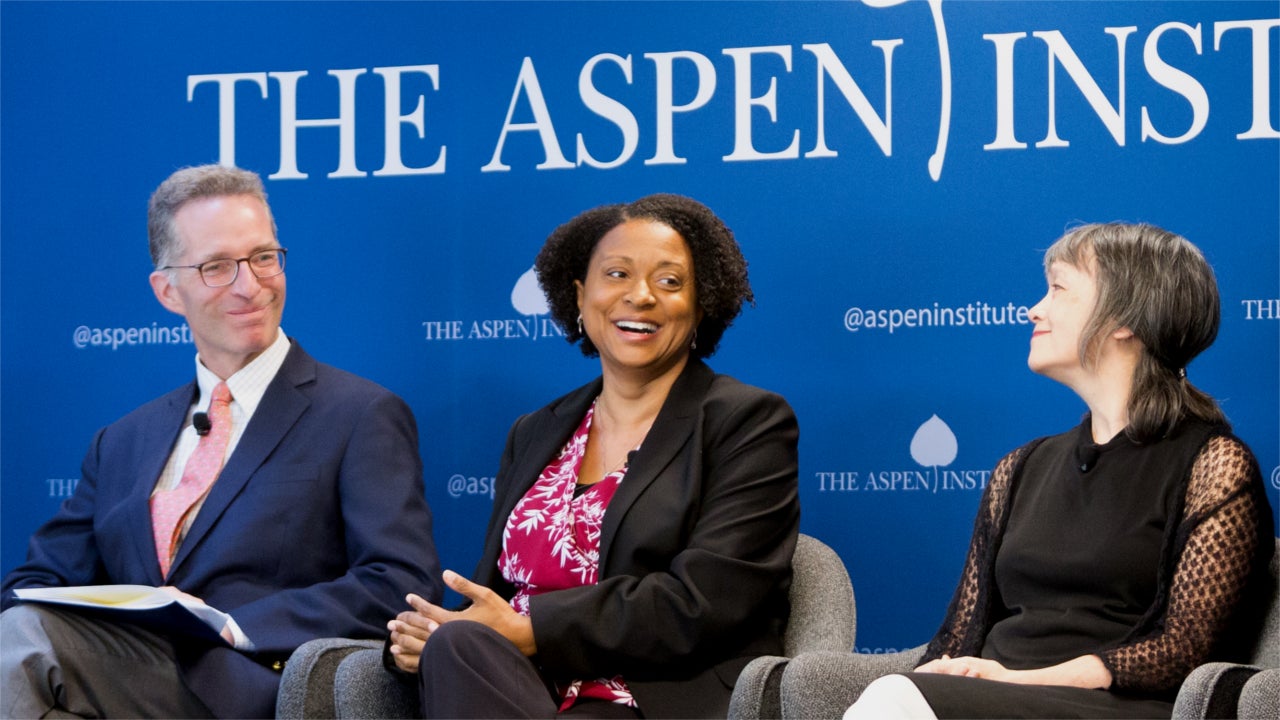We are pleased to bring you the latest edition of the Economic Opportunities Program’s newsletter! Learn how the Economic Opportunities Program (EOP) and its initiatives are driving change and helping low- and moderate-income Americans connect to and thrive in a changing economy.
Working in America
As part of the Working in America series, we hosted an event titled, “The Justice System and Jobs: How Court Decisions Are Shaping Americans’ Work Lives.” The event featured a lively discussion on how court decisions are affecting workers’ rights, especially their ability to act collectively and move freely between jobs. You can watch the full video now.
Supporting Efforts to Create Quality Jobs
Earlier this month, we announced the second cohort of the Job Quality Fellows. Selected from more than 100 impressive applicants, these 17 leaders from across the country will meet and work together to address challenges and share strategies for improving the quality of jobs in their communities.
We also published the final profiles of the first cohort of Fellows: Amanda Cage, Christine Curella, and Sean Daniel Murphy. This cohort had their final meeting in Aspen in August, where they engaged in dialogue with academics, writers, and business leaders and made plans to carry their job quality work forward. We look forward to following their continued work.
Today’s economic inequality, volatility, and low job quality challenges the ideal of the American Dream and demands action across sectors and disciplines, Maureen Conway argues in “Strategies to Advance Job Quality,” a chapter in a forthcoming book published by the Federal Reserve System. The chapter outlines practical approaches that governments, businesses, nonprofits and other civic actors can take to improve the quality of jobs for all who work. The book, Investing in America’s Workforce: Improving Outcomes for Workers and Employers, will be published November 9 and is part of a collaborative effort of the Federal Reserve System, John J. Heldrich Center for Workforce Development at Rutgers University, Ray Marshall Center of the Lyndon B. Johnson School at the University of Texas, and the W.E. Upjohn Institute for Employment Research.
We also profiled the excellent work being done by Boston Education and Skills Training Corp (BEST) and the Omni Parker House, who are working together to provide better jobs and wages for frontline workers in the hospitality field, while boosting businesses’ bottom lines.
Mark Popovich, Director of EOP’s Good Companies/Good Jobs Initiative, led a panel on improving economic mobility through employment at the 2018 Annual Meeting of Catholic Charities USA. The panel discussed how to engage with employers to promote practices that can both boost frontline workers and benefit firms through higher worker retention and productivity.
Sharing New Ideas
Upskill America and the Institute for Corporate Productivity (i4cp) continued their series of upskilling tools with new tools aimed at encouraging businesses to adopt more effective practices that provide workers with expanded opportunities that lead to advancement. “A Step-By-Step Guide to Evolving from Tuition Reimbursement to Tuition Disbursement,” guides employers in steps to remove the need for workers to pay their own tuition and then wait for reimbursement, which makes it easier for frontline workers to take advantage of tuition assistance programs. To support businesses considering this transition, Discover Financial Services provided a blog on why they changed to this model and how it’s been received by their employees. The latest tool in the series helps employers use rotation programs to upskill frontline workers, by moving them through different assignments to gain new experience or skills. Learn more about these programs and how to implement them in “Rotation Programs As Upskilling Strategies.”
Upskill America also updated its Upskilling Playbook for Employers, adding new initiatives from forward-looking employers to serve as models for others looking to learn more.
Coming out of July’s Economic Security Summit, attendees shared their thoughts on what they learned at the Summit and how they are going to take the discussion and turn it into action. Tom Kochan, Marcela Sapone, Fred Wherry, and Alison Omens all published blog posts with new perspectives on how to reconnect work and wealth in the US.
Convening Leaders to Solve Common Challenges
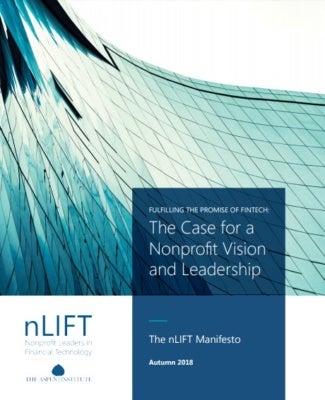 A new report from nLIFT (Nonprofit Leaders in Financial Technology) challenges the financial technology community to ensure its work lifts up the millions of Americans facing financial insecurity. FIELD is proud to convene these groups along with the Aspen Insitute’s Financial Security Program, and looks forward to continue working with them ask they implement the vision this report lays out.
A new report from nLIFT (Nonprofit Leaders in Financial Technology) challenges the financial technology community to ensure its work lifts up the millions of Americans facing financial insecurity. FIELD is proud to convene these groups along with the Aspen Insitute’s Financial Security Program, and looks forward to continue working with them ask they implement the vision this report lays out.
Two upcoming events will also focus on how technology is shaping the microfinance field. FIELD Director Joyce Klein will be moderating a panel “Deploying Technology in CDFIs – the Real Deal” at the OFN Conference on October 10. The panel will focus on learning from CDFIs that have successfully deployed new financial technology and tips they have for others looking to do the same. Joyce will also be participating in a TechSoup webinar led by Grameen America on technology and scale in microenterprise on October 11.
FIELD also hosted a meeting of the Microfinance Impact Collaborative, where participants discussed recent research on small business credit needs, shared updates on their work, and identified challenges and effective approaches to expand lending.
Upcoming at EOP
Save the date for the next Working in America event on October 29. More details will be coming soon.
We will also be sharing more about the latest cohort of Job Quality Fellows, releasing new tools to help companies upskill employees, and profiling businesses and community organizations that are working to create more quality jobs.
From the blog
Join the conversation
Follow us on social media to join the conversation.
Tweet What’s new at EOP? Learn how the @AspenInstitute Economic Opportunities Program is helping people connect to and thrive in a changing economy.
By moving away from a reimbursement model to a disbursement model, businesses can remove one of the primary barriers for many employees who want to pursue a better education.
Via @Jaimen8r @KevinWMartin @i4cp #upskilling https://t.co/BvRG6OYXYm
— UpSkill America (@upskillamerica) September 10, 2018
At #ProsperitySummit18, @alevere reminds us that the dominant narratives we hear about why people are poor are wrong. In fact, it is “about the structures, not the strivers.” pic.twitter.com/KvXtxgfVI8
— FIELD at Aspen (@AspenMicro) September 5, 2018
In Boston, @BESTCorpHTC & @OmniParkerHouse are delivering better business outcomes for hotels and better jobs & wages for frontline workers.
Read the new reports from our own @jennyweissbourd.https://t.co/ONwW40c0Uq
— Workforce Strategies (@AspenWorkforce) July 31, 2018
About EOP
The Economic Opportunities Program (EOP) advances promising strategies, policies, and ideas to help low- and moderate-income Americans connect to and thrive in a changing economy. Over its 25 years of work, EOP has focused on expanding individuals’ opportunities to connect to quality work, to start businesses, and to build assets and economic stability. For more information, visit aspeninstitute.org/eop.
EOP has several initiatives, including the Workforce Strategies Initiative, FIELD, UpSkill America, and Good Companies/Good Jobs. Learn more about these initiatives by visiting their respective websites: aspeninstitute.org/wsi, aspeninstitute.org/field, aspeninsitute.org/gcgj, and aspeninstitute.org/upskill.
The Aspen Institute is an educational and policy studies organization based in Washington, DC. Its mission is to foster leadership based on enduring values and to provide a nonpartisan venue for dealing with critical issues. For more information, visit aspeninstitute.org.
Thank you to our many partners and funders for supporting our efforts.
Keep in touch
Click here to join our mailing list or sign up below. For updates every day, follow us on social media.
